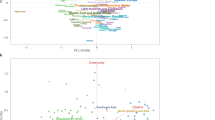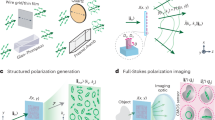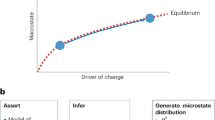Abstract
WHEN a beam of X-rays passes through a medium, three kinds of phenomena may be observed: the photoelectric effect, the Compton effect, and the socalled classical scattering. The conversion of the number of recoil and photoelectrons made by means of the Wilson expansion chamber by A. H. Compton and D. Skobeltzin showed that the probability of the Compton effect greatly increases as the wave-length decreases. On the other hand, the intensity of the scattered radiation does not depend upon the wavelength of the incident X-rays. It may be expected from this that where hard X-rays are used, the modified rays will be predominant, whereas in the case of soft X-rays (Barkla's experiments) the scattered radiation will consist almost entirely of the unmodified rays (classical scattering).
This is a preview of subscription content, access via your institution
Access options
Subscribe to this journal
Receive 51 print issues and online access
$199.00 per year
only $3.90 per issue
Buy this article
- Purchase on Springer Link
- Instant access to full article PDF
Prices may be subject to local taxes which are calculated during checkout
Similar content being viewed by others
Author information
Authors and Affiliations
Rights and permissions
About this article
Cite this article
LUKIRSKY, P. The Compton Effect and Polarisation. Nature 122, 275–276 (1928). https://doi.org/10.1038/122275a0
Issue Date:
DOI: https://doi.org/10.1038/122275a0
Comments
By submitting a comment you agree to abide by our Terms and Community Guidelines. If you find something abusive or that does not comply with our terms or guidelines please flag it as inappropriate.



